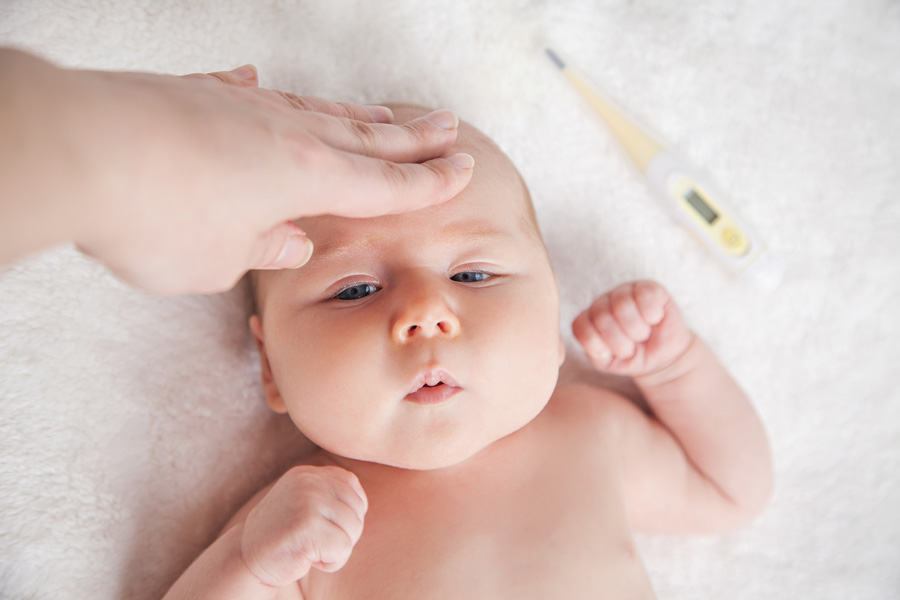Your baby is bound to have some sniffles and coughing at some point in their infancy. But when it comes to pertussis, (which is also known as whooping cough), it can be particularly scary, since the cough can be dangerous for babies. As it turns out, though, the likelihood of your child developing whooping cough isn’t because of a sibling, but someone closer to your child — you.
That’s right, a study found that it’s moms (and not older brothers or sisters) who can pass pertussis onto a baby. The study, “Sources of Infant Pertussis Infection in the United States,” found that while immediate family members were a direct source of infection, it was mothers were most likely to give whooping cough to their kiddos.
Pertussis is caused by the bacterium Bordetella pertussis, and is a highly contagious respiratory disease, the Centers for Disease Control and Prevention reported. Whooping cough gets its name from the sound which someone makes after a coughing fit. The strong, deep breaths that are needed to take in air can make a whooping sound, and if you’ve ever heard it, it’s pretty frightening, especially when it’s coming from your infant.
Although pertussis can affect anyone, it’s most dangerous (and sadly, deadly) for babies who are less than one year-old. There are between 10,000-50,000 cases of whooping cough reported each year, and most of the deaths that are linked to pertussis occur in babies younger than 3 months of age, per the CDC. About 20 babies die from whooping cough annually, and it’s due to the fact that their immune systems are still developing at that early stage of infancy.
If you want to prevent pertussis from affecting your family, the best course of action is to get vaccinated, the CDC recommends. The DTaP vaccine (Diphtheria, Tetanus, and Pertussis) vaccine is given as a series of injections, on a 2 months, 4 months, 6 months, 15-18 months, and 4-6 years-old schedule. If someone in your family is contagious, it’s best to keep them quarantined away from everyone else so that the disease doesn’t spread. Researchers from the study also recommend that pregnant women get their TDaP vaccinations during pregnancy (if they haven’t already done so) to provide protection to their babies.
That way, the only thing that will take your breath away is the sight of your beautiful baby — and not pertussis.



